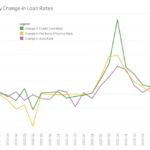Real-estate agents wear many hats. Depending on the party they are representing—buyer or seller—and the state they’re operating in, an agent may negotiate, advise on pricing, draw up contracts, coordinate showings or all of the above.
The most valuable thing they have to offer, though? That’d be “knowledge,” says Philip Hordijk, founder of real-estate brokerage Leven Real Estate. “Knowledge of the market trends, knowledge of the active inventory, knowledge of the process and knowledge of getting a deal done.”
Nearly 9 out of every 10 buyers and sellers use a real-estate agent’s help, according to the National Association of Realtors. Here’s what you can expect an agent to do for you if hired.
What agents do for home buyers
For home buyers, agents play the role of guide. They help clients through every step of the process—first, zeroing in on suitable neighborhoods and properties and touring those homes. They also draw up offers, including negotiating a fair price and any contract contingencies, and they might attend the mortgage closing, too.
According to Kimberly Jay, a real-estate broker with Compass in New York, buyer’s agents can also help filter out properties that aren’t a good fit so buyers make efficient use of their time.
“When I work with my clients, I’m not trying to show them as many properties as possible, I’m trying to show them as little as possible, because time is something you can’t get back,” Jay says.
Real-estate agents can also provide valuable referrals throughout the home buying process—for home inspectors, attorneys, mortgage lenders, title companies, contractors for renovations and more. And in markets where condos and co-ops are common, agents are critical. These properties often require board approval, so buyers must submit applications and sometimes be interviewed before their offer is approved.
Jeremy Kamm, for example, is an agent in New York City. A big part of his job, he says, is researching the rules and regulations of properties his clients are interested in. Co-op purchases are particularly complicated because co-op boards have the power to deny an application and squash a deal.
“The board packages can be extremely tedious and time-consuming,” Kamm says. “We virtually hold their hands throughout the entire process.”
What agents do for home sellers
Seller’s agents—often called listing agents—are more focused on the property. They may stage the home, photograph it, market it and list it publicly. Most important, they price the home.
“An accurately priced, well-prepared listing will sell for more money than a home that is overpriced and then reduces its price,” says Jesse Sheldon, a real-estate broker with Re/Max NW in Seattle.
Listing agents also negotiate with interested buyers and their agents and coordinate showings to accommodate the seller’s schedule. They can also help sellers better spot good offers—buyers who are most likely to get approved for a mortgage or pass the co-op board’s approval, for instance.
What agents do for renters
Real-estate agents don’t just help with purchasing property; they can also assist with rentals, matching renters with apartments or helping landlords fill vacancies. In some cases, agents may be able to connect tenants with off-market properties through their professional network, and they can help ensure the renter meets a unit’s requirements, too.
“Showing the renter an off-market listing is great,” Hordijk says. “But making sure they actually get the apartment they want is key.”
Experience varies widely from one agent to the next. In fact, according to the National Association of Realtors, 25% of agents have two-or-fewer years experience, while 39% have 16-or-more years under their belts. Those with two years or less experience do an average of just three transactions a year. But agents with 16 or more? They do 14 deals annually.
While an experienced agent doesn’t necessarily mean you’ll get a better deal or sell your place for more, it does mean your agent has logged more time handling the ins and outs of real-estate transactions—negotiating contracts, vetting offers and pricing properties, for example—all things that can impact your bottom line and how quickly your deal gets done.
Agents’ credentials also differ. Some have extra education in luxury marketing, relocations or real-estate investing, for example.
Do you want to make sure you’re choosing the right agent for your deal? Here’s how experts recommend going about the process:
Ask friends, family and your employer
Referrals are the gold standard in the real-estate world. As Christian Ross, associate broker at Engel & Völkers puts it, “The best way to find a real-estate agent is through friends and family that have had exceptional experiences they rave about.”
If you’re moving somewhere totally new, reach out to your employer. The human resources department may have agents they can point you to. Exxon Mobil, for example, offers employees relocation and home buying assistance through its partner Cartus. If your company doesn’t offer something similar, you can also ask a colleague who they used when moving to the area.
A note of caution: Think hard before choosing a friend or family member to help with a real estate transaction. Ask yourself, suggests Desiree Avila, a real-estate agent with Charles Rutenberg Realty Fort Lauderdale: “Do I want to work with the best, or do I want to help cousin Johnny?”
“Unless that friend or family member is a real estate professional that is an all-in, seasoned agent with experience, that person may not be the right professional for the job,” says Avila. An agent “that doesn’t have the experience can be more of a liability than an asset.”
Check your local Realtor association
Most large cities have their own Realtor associations. In Houston, for example, there’s the Houston Association of Realtors, or HAR. The group’s site has an agent search tool you can use to find professionals that serve the ZIP Codes you’re shopping in. You can also filter for multilingual agents or agents with specific designations and specializations.
If you’re not sure what your local Realtor group is, NAR has a full list of state and local associations.
Search online directories—with care
There are plenty of third-party real estate sites that offer agent directories, too, including Realtor.com and Zillow. (News Corp, owner of The Wall Street Journal, operates Realtor.com under license from the National Association of Realtors.)
While these can be a good way to find candidates, it is also important to note that agents often pay for placement in these directories. This means that the agent who shows up first in your search may not be the best-suited one for you—just one who paid.
“There is nothing wrong with an agent investing in their business,” Ross says. “But you want to make sure you’re searching for an agent that matches the parameters you’re looking for.”
If you find an agent on a third-party site, check their license (and any disciplinary actions) with your state real estate board, and look for additional reviews. Yelp and your local real estate association can be good resources.
Ask your last agent for a referral
If you’re moving to a new metro or state, it might be impossible to use the last real-estate agent you worked with. Reach out anyway, and ask for a referral. If they work for a large firm, there is a good chance they know agents in other parts of the country, too.
Just be aware: They may get a referral fee or commission share from the other agent for these services if a deal gets done.
Interview several candidates
Even with a referral from a trusted source, you should interview a few agents before choosing. As Bret Weinstein, president of Guide Real Estate in Denver, notes, “Just because your friend had a great experience with someone, doesn’t mean that you will.”
You’ll probably work with your agent for quite a while, so it is critical to make sure you feel comfortable with them and that they understand your needs. Most listing contracts last at least 90 days, while finding a a property to buy can take many months.
“You speak with your agent a minimum of a few times a week, and it may even be every day,” Jay says. “Besides pricing and getting a home show-ready, you have to think about if you want to have a relationship with this person.”
To make sure you find the right fit, agents say to ask these questions when interviewing candidates.
Questions to ask a buyer’s agent
Buyers will want to get an idea of an agent’s experience in the local market and how available they’ll be throughout the home search.
Buyers should ask:
How long have you been working in this market?How many clients do you currently have?Is this your full-time job?What is your approach to finding properties?How do you handle multiple-offer situations?Can you help me navigate the mortgage process?How will we communicate? (Text, email, phone, etc.)Who can I contact if you are on vacation or unavailable for some reason?
Once you think you’ve found the right person, ask for at least three references.
Questions to ask a listing agent
When you’re looking for someone to list your home, you’ll want to focus on how they plan to market and price the property.
Sellers should ask:
What would your marketing strategy for my home look like?How would you price my property and why?How many homes have you sold in this area this year?Will you be hosting an open house?What’s your commission rate?
You can also ask for their sale-to-list-price ratio, which reflects the price their listings sell for compared with the asking price. Anything below 100% means their homes sell for less than what they price them at. In 2022, NAR data shows 65% of homes sold at or above list price. Another 1 in 5 sold for 95% to 99% of their list price. (Keep in mind, this can include homes that sold after a cut in listing price.)
Questions to ask yourself
Before you can choose an agent, you need to know what you want from one. Are you looking for someone who can sell your house fast? A person with tons of local experience? Someone who will market your property on social media, with virtual tours or in other creative ways? Make a list of what you want before you go into interviews.
Pay attention to the rapport you have with each candidate, and do a vibe check. “Does the agent listen to you?” Hordijk asks. “Does the agent ask you the right questions? Does the agent have time to help you or is he or she too busy?”
Types of real-estate agents
The term “real-estate agent” typically refers to someone who holds a real estate license in the state they are operating in, so the exact qualifications vary by state. In Texas, for example, you need at least 180 classroom hours with an approved education provider and to pass a state licensing exam.
With continuing education, agents can specialize in niches—such as luxury or commercial real estate—or even open their own brokerage and oversee other agents.
Realtor vs. real-estate agent
A real-estate agent and a Realtor are essentially the same thing, though the latter is one who has joined the National Association of Realtors, a trade organization for agents that represents 1.5 million agents.
NAR membership grants real-estate agents access to Multiple Listing Services—local databases used to list and share properties. Realtors also must take a course on NAR’s code of ethics—and agree to adhere to it—before becoming members. The code includes rules such as not misleading clients, safeguarding confidential information and disclosing any dual agency (when an agent represents both the buyer and the seller in one transaction).
Real-estate broker vs. agent
There is also a differentiation between a real-estate agent and a real-estate broker. Again, both professionals can help you buy and sell real estate, but brokers are higher ranking. A broker typically owns a real-estate firm and oversees other agents. Brokers also usually get a cut of commissions from agents they oversee.
The process for becoming a broker varies by state, but most need at least three years of experience, must meet additional education requirements and take a broker licensing exam. Once licensed, they can manage other agents or open their own brokerage.
Licensed brokers who don’t run their own firms are usually called associate brokers. They can continue to work under the main broker of the real-estate firm they work with.
How real-estate agents get paid
Real-estate agents are paid on commission in most cases. When a home sells, the listing agent typically gets around 6% of the total sale price. They then split that commission with the buyer’s agent and their supervising broker.
Agents who work with renters can be paid a flat referral fee or, in areas with lots of rental volume, one month’s rent or a percentage of the total annual rent. The model and rate depends on the market.
This article was originally published by a www.wsj.com . Read the Original article here. .



